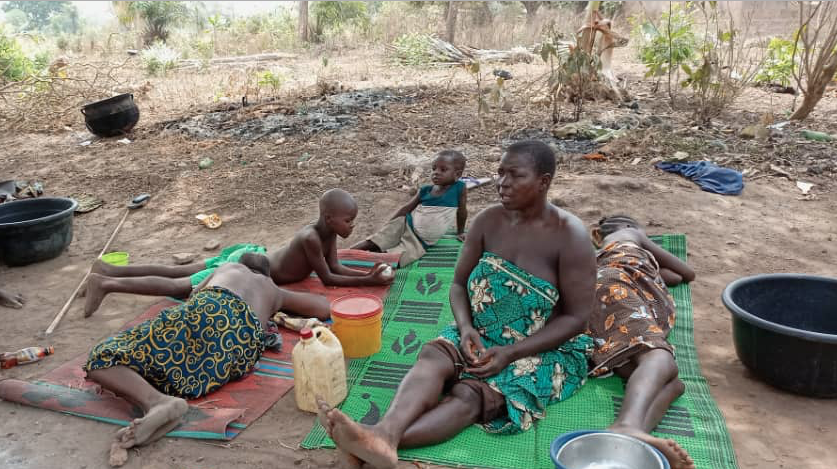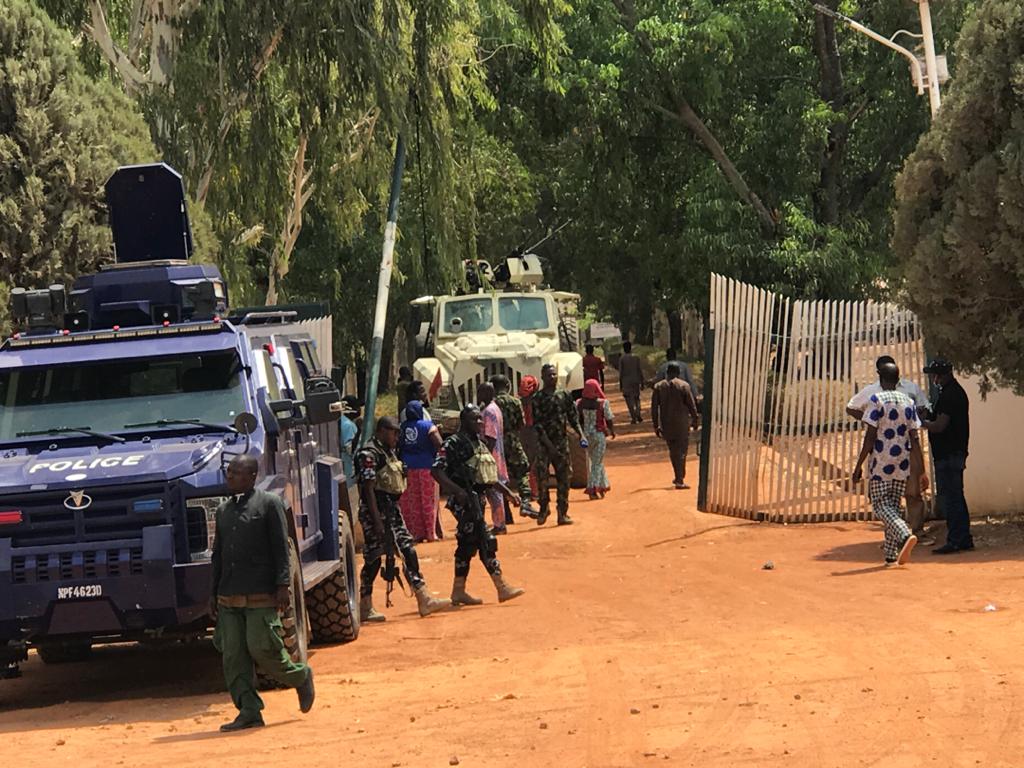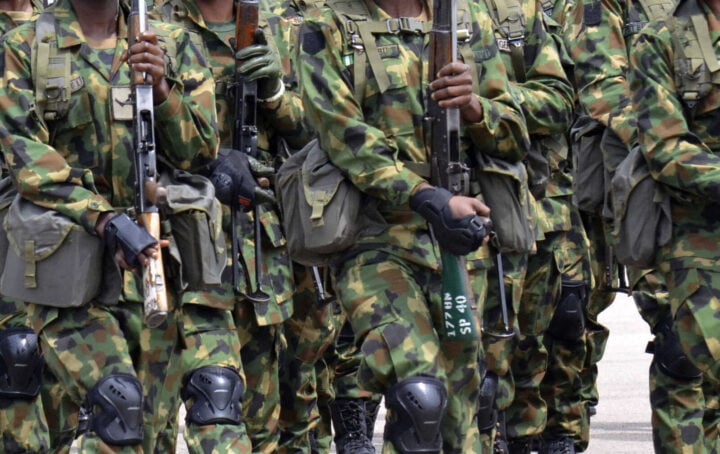As soon as Biodun Sango, a resident of Ashaga village in Yewa North LGA of Ogun, began to hear the uninterrupted echoes of gunshots and piercing screams at his farm, his mind ran amok. Immediately, he dropped his hoes, cutlasses, and began to run home. Sango had told his nursing wife, who had given birth to twins the previous day, that he would be going to the farm to harvest some crops, and would return by nightfall. But he could no longer wait to complete his work at the farm. He needed to save his family.
Beating through the crowd of wailing villagers who had run into the bush to escape the rain of bullets, Sango found that his doors were flung open when he got home. His wife and three children were nowhere to be found. He was devastated and began to search for them amidst the turmoil. One of the villagers rushing to safety told him that his wife and children crossed the border to Benin Republic. Sango was temporarily relieved but knew it was not yet Uhuru. He needed to locate his family. So, he joined the exodus of villagers making their way to Towe, a village in Pobe, a neighbouring town in Benin Republic.
Sango, 30, cannot forget January 27 in a hurry. He described it as a night of tragedy while pointing to the injury he sustained in the bush. “Bad day devil wey drink water,” he smacked in Pidgin, with a sharp wolfish grin on the left side of his mouth.
“I fell inside the bush while I was running home to rescue my family. The sharp wood pierced my leg and I began to bleed, but I didn’t wait. I heard people crying about war from afar. I kept running. I got home and they were gone. I almost lost my mind immediately. My wife had just given birth to twins not up to 24 hours when herders attacked the village and she was not strong enough yet. Where could she be? The doors were wide open and they didn’t pick any cloth,” Sango said.
Advertisement
“When I finally reached my wife on phone, she told me where she was at Towe. My eight-year-old first child carried one of the twins and my wife carried the second and they walked inside the bush for four hours before they got to Benin. Right now, they are very scared and yet to recover from the trauma. They will only return to this village when we feel safe.”
MASS MIGRATION: RESIDENTS SEEK REFUGE IN BENIN REPUBLIC
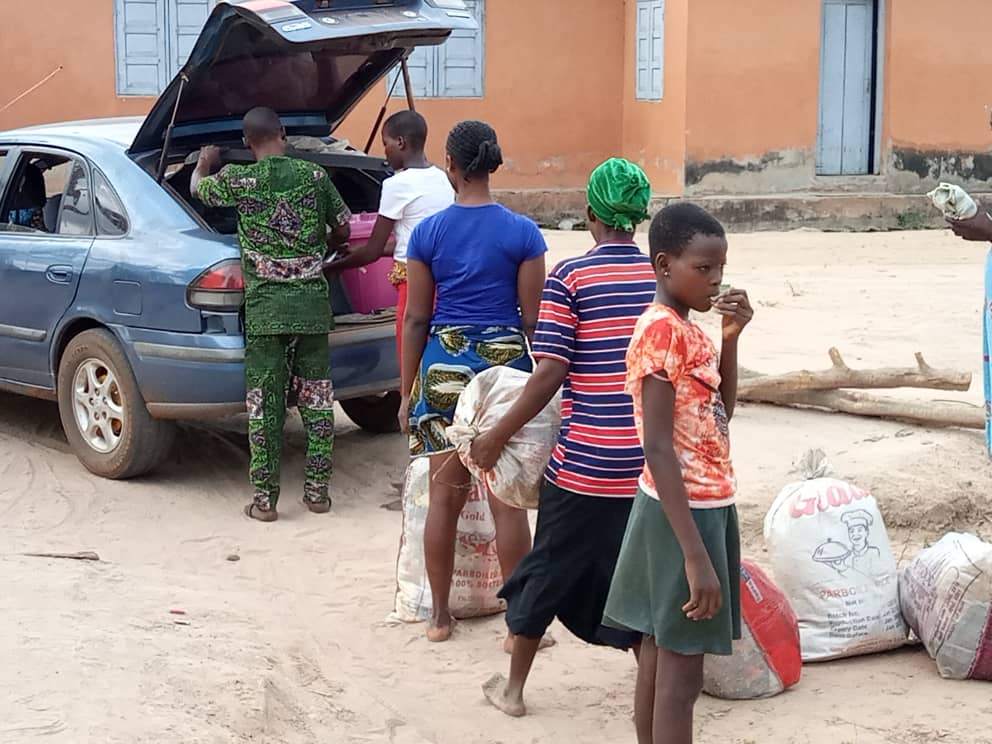
At the roadside bamboo shed where Sango and seven men sat with their motorcycles, they appeared restless, monitoring every movement across the road. They drive from Benin Republic to Ashaga in the afternoons and return as soon as it is 6pm.
Advertisement
“Only the men are coming back to the village. Mind you, we have not returned fully. We only come in the afternoon and return to Benin before evening. That’s because the herders only carry out their attacks towards the evening or at midnight,” Abiola Kosolu, a 25-year-old resident of Ashaga, said.
“We cannot even visit our farms to get some food for our family members in Towe. The herders have destroyed the farm and given the crops to their cows to eat. Moreover, there is a probability that one might get killed on the farm.”
When the men took this reporter through the village, it had become a shadow of its self. The usual sight of children darting around and women crisscrossing the farms and their kitchens had given way to empty streets, deserted houses, hollow barns and bushes creeping over thatched houses. Ashaga is not alone in this predicament. Several villages along the borders in Yewa North have become ghost settlements. The attack on Ashaga sent a shocking wave across Idigbo, the next village, and the residents also took to their heels.
Advertisement
Fifty-year-old Oluwafemi Egunjobi, a farmer in Idigbo, ran barefoot as far as her leg could carry her when news of the invasion got to her. With just a wrapper around her body, she fled towards the border to Pobe.
“I got to the Benin Republic at midnight around 1 am. My wrapper was completely wet. While running in the bush, you don’t want to use torchlight so that the herders won’t see you. You just keep running in the dark,” she said amid jitters.
DEATHS, DESTRUCTION: “WE DON’T WANT THEM AGAIN”
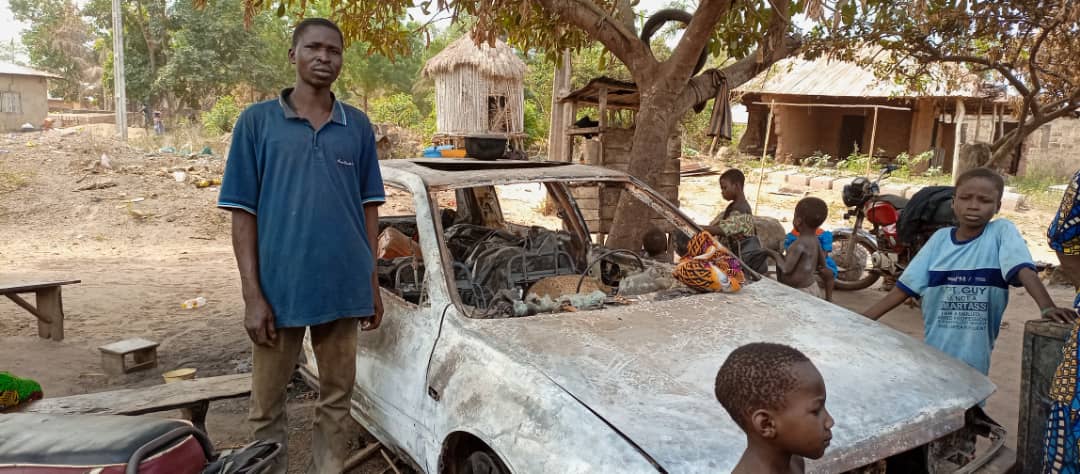
On the evening of February 14, when the world was celebrating Valentine’s Day, suspected herders numbering about 40 stormed Asa, one of the villages in Yewa North. In less than 30 minutes, they had left a trail of blood and destruction in the community. But 50-year-old Kehinde Gbadamosi was not as lucky as others. He was shot dead and burnt in the house where he was captured. His remains were buried at the back of the torn-down building.
Advertisement
When Akapo Ismaila struggled to come back to Asa a few weeks after the incident, he met his car badly burnt and the village in ruins. He said the herders came with Ak-47 and Dane guns, hid in a nearby forest and descended on the village as it was about to get dark. About 20 houses, 30 barns, motorcycles, power generating sets and cars were torched. The traditional ruler of the community, 87-year-old Matthew Akande, was whisked away by his children. According to him, the trauma of that night still lives in the heart of the villagers. Amidst the ruins, traders had resumed activities and the market was bustling when this reporter visited the community.
“Come back here by 7 pm, you will meet no one in the village again. Everyone would have returned to other communities to sleep, some to Oja-Odan, some to Ijoun, others return to the Benin Republic. Only a few of us stay. I stay here till 9 pm and I go to Oja-Odan to sleep and come back in the morning,” Akande said.
Advertisement
“Before, we used to keep our barns at the farm. We had to start building new ones around our homes because of the herders who loot the farms. The state government brought palliatives: rice, garri and noodles. They said we shouldn’t go to the farm until we get adequate security. But the palliatives they brought cannot last us for more than one week. Rain has begun and we can’t even return to the farms. We didn’t offend the herders to warrant this attack. We don’t want them around our community again.”
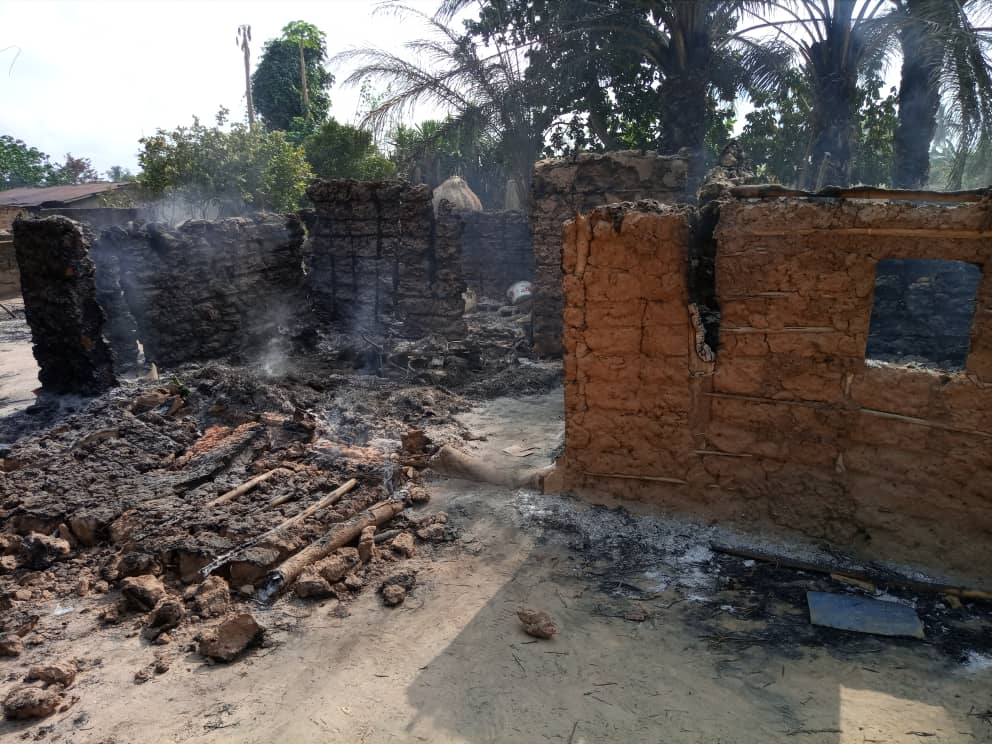
According to residents, the farmer-herder crisis in the Yewa area has been going on for more than 20 years. The crisis, however, took a new dimension in the past four years when a new set of armed herders started invading the agrarian communities in large numbers at night, burning houses to the ground, killing scores of residents, destroying farms, kidnapping residents for ransom and looting businesses. Some of the communities affected in the Yewa area are Oja-Odan, Asa, Ebute-Igbooro, Owode-Ketu, Imeko, Egua, Ijoun, and Agbon-Ojodu.
Advertisement
After a crisis that led to the killing of five residents in Owode-Ketu and Egua in February, a group of youths under the umbrella of Yewa North Patriotic Forum (YNPF) gave the herders a seven-day ultimatum to leave the area.
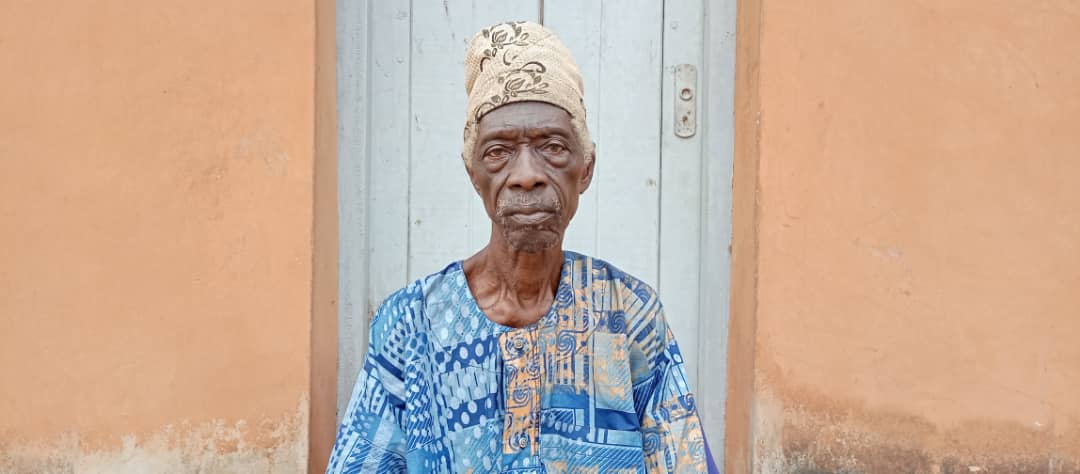
In the same vein, Kehinde Olugbenle, the Olu of Ilaro and paramount ruler of Yewa land, wrote an open letter to President Muhammadu Buhari, saying his people are ready to defend themselves against armed herders if the federal government does not intervene.
Advertisement
The crisis has also affected the schools in the communities. The children have relocated with their mothers to safer communities, and the Benin Republic where they are displaced and not attending schools. Out of over 400 pupils at the primary school in Asa village, only five were in attendance when this reporter visited. On a visit to Yewa North Government Primary School, Idigbo village, the doors were shut. Similarly, the pupils of Community Primary School at Ogunba-Ayetoro village have deserted the make-shift building for over two months.
HOW OGUN LIED TO COVER UP ITS REFUGEE CRISIS

In spite of the growing tension and displacement in the area, the state government has been in denial. The government attempted to manipulate the truth and downplay the humanitarian crisis in the state by claiming that none of the displaced victims of the crisis is in the Benin Republic.
Kayode Oladele, chairman of the Ogun state peacekeeping committee on farmers/herders conflict, had said the people who migrated from the Yewa area were not actual citizens, but Beninese who came to farm in the area and returned to their country owing to the crisis.
“There was a publication that Yewa farmers are now refugees in Benin Republic; that has no iota of truth. Yewa, being a border community, also plays host to other people from our sisters and brothers on the other side of the border, that is on the side of the Republic of Benin,” Oladele said.
“We have the Hohori and some Eguns who come from time to time to lease farmland in Yewaland, live with us and they have been doing that for years. So, when the problem and conflict started, the natural thing is for them to return to their home country… so, it is not as if Yewa people have relocated, we don’t have a refugee crisis in Yewa.”
During a visit to one of the affected villages in Yewa North, Kunle Garb, a missionary who founded a free-tuition school in the area, described the state government’s claim as false.
“They are trying to rubbish the people’s narrative. They want to cover up the issue so that the world will not see them, just because the people do not have a voice. A lot of the residents are right there taking refuge in the Benin Republic. Imagine the state government came here to give N2,000 worth of palliatives to people whose large barns were burnt,” Garb said.
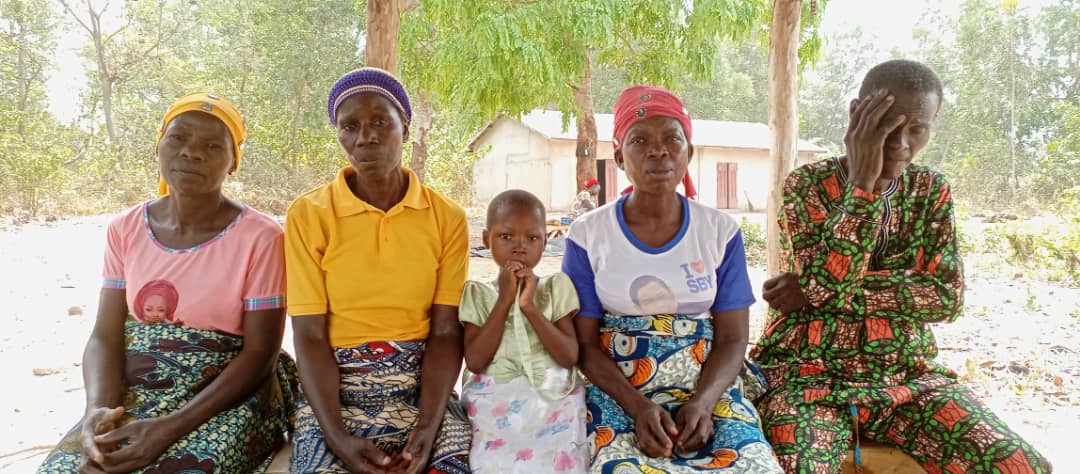
When Sunday Oguntosin, a 65-year-old retired teacher from Idigbo, heard the state’s claim, his jaw dropped. Staring at the people beside him, he blurted out: “But that is a lie. I was born here. I’m a retired teacher. I just came back to this village yesterday since I took my family to Pobe, Benin Republic, in January.
“My younger brother, Adebayo Oguntosin, just 25 years old, was killed by the herders at Owode-Ketu. You cannot expect me to stay and let them kill me too. If you had come here eight days ago, you wouldn’t have met anyone in this village. Everyone ran to Benin.”
The state chapter of the Nigerian Red Cross Society (NRCS) also confirmed that some Yewa residents had relocated to the neighbouring country as a result of the attacks by suspected herders.
“The people have deserted their homes and they now sleep in Benin Republic. You can imagine people leaving Nigeria to seek protection in another country. The situation is more than pathetic,” according to Oluwole Aboyade, executive secretary of the Ogun state branch of the NRCS.
THE TRIP TO BENIN REPUBLIC
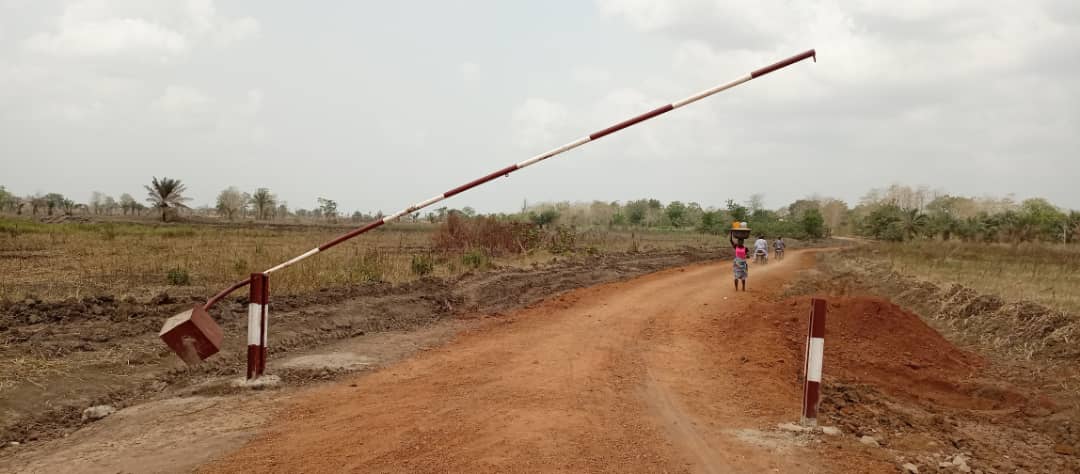
For more than two hours, the motorcycle zigzagged across the windy, dusty and dangerous smuggling path to the neighbouring country. An iron bar demarcates the unmanned border between Nigeria and the Benin Republic.
When this reporter arrived in Iganna, a community in the Commune of Pobe, Benin Republic, he was directed to a small building beside the police station housing about 300 Nigerians who were victims of herders’ invasion in Yewa-north. Ruth Akapo, one of the women at the internally displaced persons (IDP) camp, narrated how she fled Asa village to Iganna during the February 14 attack.
“When we started hearing guns, we jumped out of the house and began to run. We didn’t take anything. We got to Abule-Oja village, but we didn’t wait there because we fear they could come to attack us. We came straight to Iganna the same day. The government of Benin Republic has been feeding us. They give us rice and good water. We don’t know when we will return. Not until we are sure that we can sleep peacefully with our two eyes closed,” Akapo said.
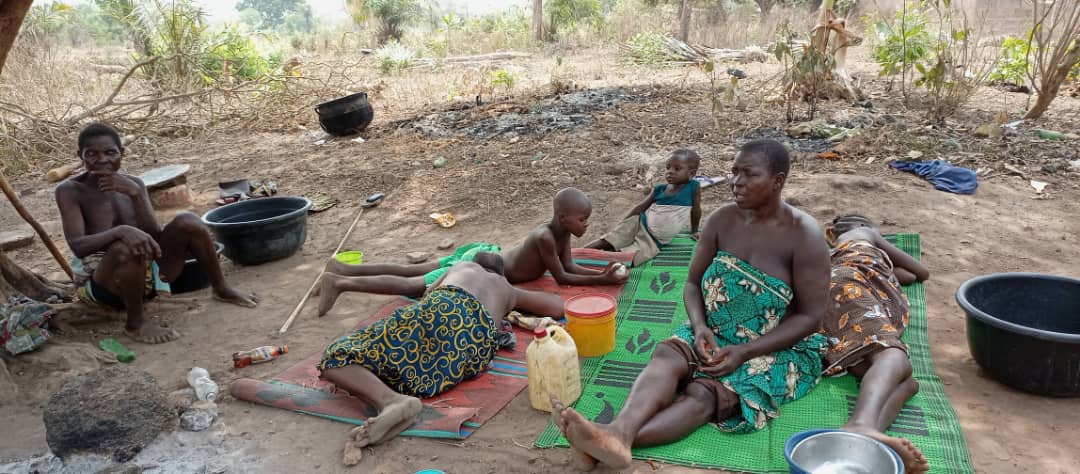
Olabisi Yemi, a 27-year-old tailor, keeps complaining that she has been idle since she got to the neighbouring country and cannot adequately feed her six children, including five-month-old twins. That morning, she said she managed to feed them with maize and palm-oil and does not know where the next meal will come from. When her husband returned to Asa to get her sewing machine so that she could start working and making some money at their new base, he found out that it had been destroyed by the invaders. He returned empty-handed.
Almost every house in Towe has a displaced person from Yewa North. Rachel Egunjobi, a petty trader who fled with her family from Idigbo to the Beninese village, rested on a mat outside the compound and whispered in low tones to the pregnant lady beside her. The expectant mother had also endured a long trek in the bush to save her life and that of the unborn baby.
“When we got here, the house could not contain all of us. Some slept in the kitchen. We are suffering here. We want to return, but we don’t know how safe it is,” Egunjobi said.
The media in Benin has reported that nearly 5,000 Nigerians are displaced in Pobe, Benin Republic, as a result of the crisis. “I can assure you, you are our brothers and sisters, you are our parents, you are our friends. So your safety will be assured. That is why the police are already mobilised for you,” Adebayo Simon Dina, mayor of Pobe, had said.
According to the United Nations High Commissioner for Refugees (UNHCR), Nigeria has over 2.1 million internally displaced people, with refugees scattered across Niger, Chad, Cameroon and the Benin Republic. A recent report by SBM Intelligence, Nigeria’s geopolitical intelligence platform, says the number of displaced people in the country is almost the same as countries that are officially at war.
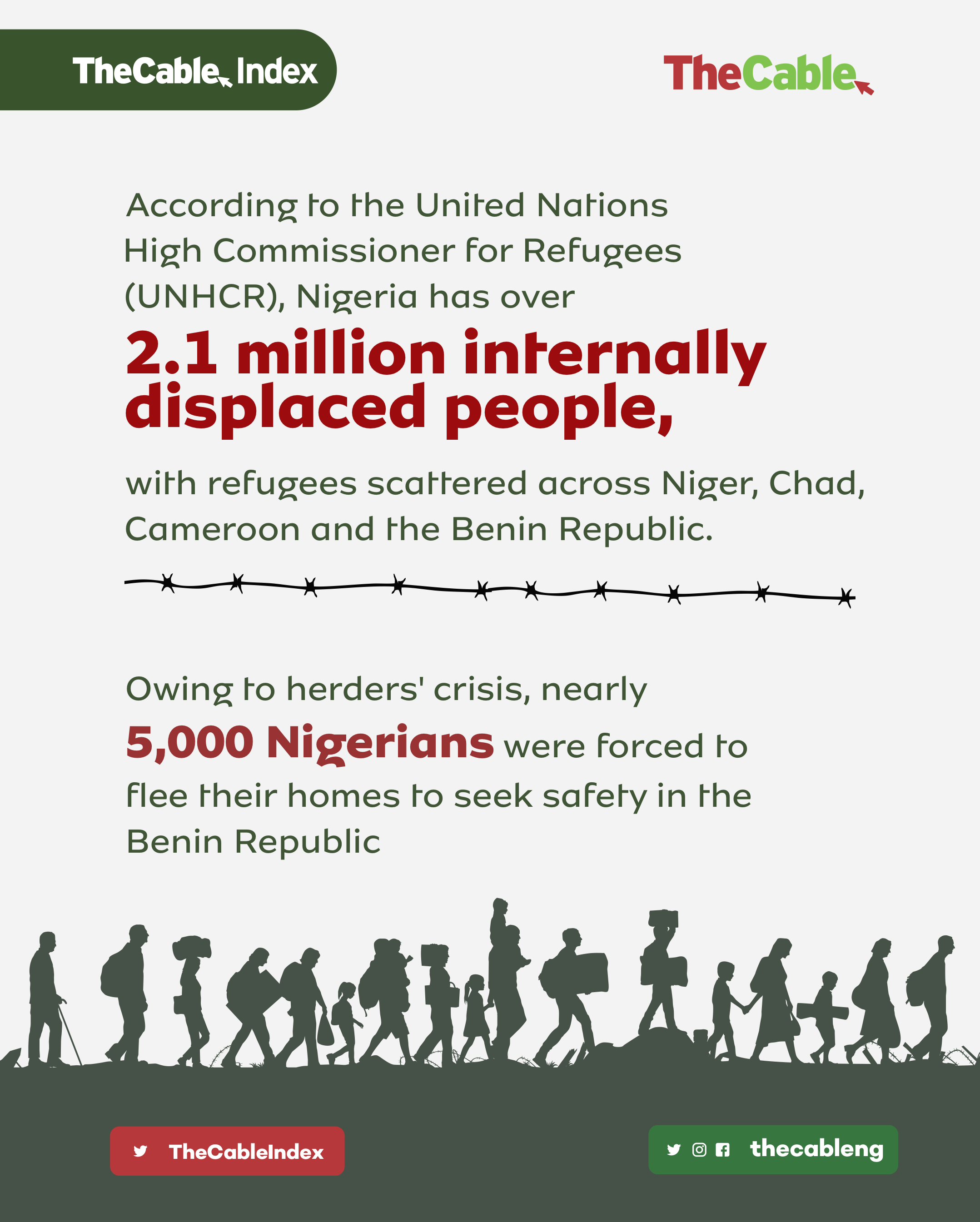
When TheCable reached out to the chairman of the state peacekeeping committee on its findings, he said the issues will be fully addressed in due course.
“Our committee is presently focused on its mandate with my personal assurance that this and other issues will be fully addressed in our final report,” Oladele said.
While the displaced farmers in Yewa long to return to their ancestral homes and pick up the broken pieces of their lives, the lingering fear of future attacks keeps holding them back. There is no respite or guarantee of safety as the state government has refused to acknowledge their pains and suffering, while the federal government is overwhelmed with national security challenges.
This is a special investigative project by Cable Newspaper Journalism Foundation (CNJF) in partnership with TheCable, supported by the MacArthur Foundation. Published materials are not views of the MacArthur Foundation.

